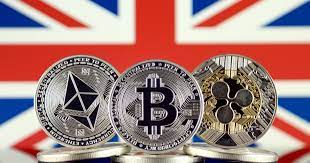Crypto enthusiasts on Thursday cheered Ripple’s partial victory in court, as a judge determined that XRP (XRPUSD) is not a security. While this is being taken by many in the crypto community as a sign that cryptocurrencies and blockchain-based assets will be permitted to grow in the United States, several legal experts have pointed out the need for even more regulation.
FOCUS POINTS
- According to a judgement released on Thursday in the case between Ripple and the SEC, the digital asset XRP is not a security.
- Many in the cryptocurrency community are optimistic that this will finally bring an end to the SEC’s “war” against cryptocurrencies, and exchanges have already begun relisting XRP as a result of the announcement.
- Many U.S.-based exchanges have decided to relist XRP following the verdict, which is considered as a boon for Binance and Coinbase’s legal standing. The SEC’s proceedings against Binance and Coinbase will also be affected by the ruling.
- Despite the short-term good news for crypto fans, the Ripple verdict may not be the final word on how crypto assets are to be categorised.
What Does the XRP Ruling Mean for Crypto Assets?
Bitcoin is a commodity, and this categorization clarifies the nature and scope of regulatory oversight. However, this is not true of the vast majority of digital currencies.
The U.S. Securities and Exchange Commission (SEC) has taken the position that the vast majority of cryptocurrency assets are securities and are thus subject to securities laws.As a result, the regulator has taken action against crypto token issuers and crypto exchanges like Binance and Coinbase (COIN) that hosted markets for their trading.
Some in the cryptocurrency business are optimistic that the SEC will have to take a more hands-off attitude moving ahead in light of the recent court finding that XRP is not an investment contract. Several other crypto assets, including Solana (SOLUSD) and Polygon (MATIC), which had previously been classified as securities, also saw price increases following the Ripple court order’s announcement.
Partner at Morrison Cohen Jason Gottlieb said Thursday’s decision is a divergence from the SEC’s proceedings against Telegram and Kik, where it was established that all ICOs were connected and constituted a single investment scheme.If cryptocurrency assets are sufficiently decentralised or are not sold to the general public, they may be eligible for trading as “unrestricted securities.” Gottlieb adds that it’s hard to classify staking rewards as securities under the Ripple decision.
While there are still many unanswered problems, Gottlieb believes that the early celebration of the judgement was appropriate. Token issuers and exchanges will benefit greatly from this new court direction because it clarifies lawful means of doing business in the token economy.
Implications for SEC Cases Against Binance and Coinbase
In addition to providing crypto token issuers with greater clarity, Thursday’s Ripple court judgement also appears to provide exchange operators with greater leeway in terms of what can be posted on their platforms.
According to a federal judge’s ruling from Thursday, the XRP coin “is not in and of itself a “contract, transaction[,] or scheme” that fulfils the Howey requirements of an investment contract. According to the judgement, only XRP transactions involving institutional investors violated securities rules, while those involving regular investors were legal.
That may have some bearing on the SEC’s actions against Binance and Coinbase, the two exchanges the agency is going after for allegedly running unregulated securities markets.
Paul Grewal, Coinbase’s chief legal officer, recently told CNBC that the court order in the Ripple case has strengthened the cryptocurrency exchange’s legal position. Before this judgement, I was confident we would win,” Grewal said. As a result of this ruling, we believe the case is much more compelling.
The subject of whether the SEC would go after the cryptocurrency exchanges that have decided to relist XRP was raised by Brown Rudnick Partner Stephen Palley on an episode of The Chopping Block. Palley stated, “If that’s the case, then the exchanges are ready to fight.”
In addition, Palley expressed confidence that Coinbase would use the new legal opinion in their case against the SEC to show that the transactions that take place on their platform do not constitute securities transactions. Coinbase and Kraken relisting [XRP] is the most critical evidence, at least in the immediate term,” Palley said. “That certainly has some significance.”
This is Not a Final Decision
While the crypto industry can celebrate the Ripple court order for the time being, it’s possible that this decision won’t stand the test of time.
First, the SEC can still file an appeal of the judge’s ruling in the Ripple case. Second, SEC Commissioner Hester Peirce has advocated for new legislation to be passed in Congress to definitively classify crypto assets for regulatory purposes.
Brown Rudnick Partner Preston Byrne wrote his own piece on the subject, in which he predicted that the SEC will challenge the judgement and have it reversed.Gottlieb added his own disclaimer, pointing out that this is just one district court’s ruling, and other courts are free to follow it or not.
Byrne argues that the court erred by ruling that “programmatic” sales of XRP on exchanges do not constitute investment contracts. He thinks that it is “obvious to anyone active in the industry” that Ripple is the primary promoter of XRP. This is true regardless of whether or not buyers of XRP on exchanges knew that they were buying from Ripple.
Rather than leaving cryptocurrency regulation to the slow and contradictory hands of our courts and the politically motivated hands of the SEC, Byrne hopes that Congress will decide that it is time for cryptocurrency tokens and cryptocurrency exchanges to receive their own purpose-built disclosure and supervisory frameworks. However, I have very few hopes for Congress.
Also Read : Kotak Mahindra Bank : Consolidated net profit up 50.62% at Rs 4,150.19 crore





